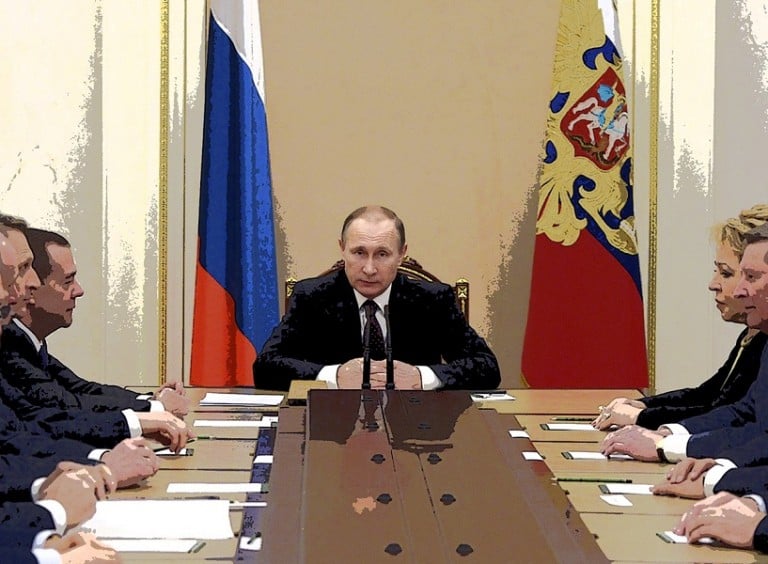
A wave of fear is passing through Europe. With unresolved problems in the euro and refugee crisis, left-wing and right-wing populists are gaining strength. The Russian state media are providing ample publicity to politicians from former Greek finance minister, Yanis Varoufakis, to French Front National leader, Marine Le Pen, and to movements from the German left to the xenophobic Pegida, and are reporting with relish on the possibility of a collapse of the European Union. There are growing fears in Germany that there is more behind these reports than meets the eye.
There is speculation that the Kremlin is funding both radical right-wing and radical left-wing parties in Europe with the aim of destroying the European Union, with a large loan by a Russian-Czech bank to France’s far-right Front National cited as evidence. But one should be careful not to reverse the causal relationships.
There are reasons why left- and right-wing extremists throughout Europe support Mr. Putin’s policies. It is also not a coincidence that Russian civil rights activists value their relationships with liberals and democrats in the West. Partners of the Friedrich Naumann Foundation, like the GOLOS Association, have also come under fire in Russia for having accepted money from the United States in the past. The Kremlin has systematically dried up these sources of funding with new laws, but this hasn’t stopped the activists from doing their work.
A similar situation applies to friends of the Kremlin among Europe’s extremists. Those on the right love Mr. Putin because they see him as a symbol of authoritarian power and alternative to liberal democracy, a strong national state and the fight against the hegemony of the United States. Leftist Sahra Wagenknecht and Alexander Gauland, deputy leader of the right-wing Alternative for Germany, agree that Germany needs a “sovereign foreign policy,” and that it should limit its cooperation with the United States while closing ranks with Russia at the same time.
The Front National in France, Pegida and the AfD, like the radicals on the left, are enemies of an open society. But part of what makes our democracy thrive is that we tolerate and can discuss other opinions within the framework of our constitutional order.
The Russian state media comply with their president’s situational decisions. When a British journalist asked him to describe “the Russian view of things” that Russian propaganda broadcaster RT seeks to publicize, the station’s managing director Alexey Nikolov said bluntly: “Oh, there is always a Russian view of things.”
But many Europeans draw the line when it comes to media support for right-wing and left-wing extremists. As Russian Prime Minister Dmitry Medvedev said at the Munich Security Conference, we are in a “new era of the Cold War.” The dangerous Cold War adage, “The enemy of my enemy is my friend,” and the Russian media’s exploitation of Pegida and rumors like the ones that surfaced in the “Lisa” case, where a Russian teenager in Berlin claimed to have been assaulted by asylum seekers, reinforce the perception of “hybrid warfare.” The Front National in France, Pegida and the AfD, like the radicals on the left, are enemies of an open society. But part of what makes our democracy thrive is that we tolerate and can discuss other opinions within the framework of our constitutional order. The CIA is not capable of triggering an event like the protests in Kiev known as the Maidan, nor can a Russian intelligence service use Pegida to overthrow German Chancellor Angela Merkel.
By Julius von Freytag-Loringhoven, Handelsblatt





